Emotional intelligence
Our reading of any context starts with our own state of mind and feelings. How we react, conclude or decide in a context depends on how we feel at that moment.
There is a close relationship between intelligence and affectivity: the faculty of reasoning can be diminished, or even destroyed, by a deficit of emotion … there is no hierarchy of reason over emotion, but rather a feedback loop between intellect ← → sentiments. (Morin, 1999).
Notwithstanding the range of recent scientific studies showing the essential relationship between emotions and rational behaviours, it is not too hard to observe how feelings of joy, sadness, anger, fear, surprise, anticipation, disgust or trust control our behaviours, views and decisions in any context. Developing emotional intelligence implies becoming aware of the emotions experienced; learning to love oneself; to develop one’s potential to manage emotions in order to achieve goals; to empathize with others and to build quality relationships.
You want to know more? Take the time to read…
Or discover it through a training program? Join us..
Social intelligence
A context naturally includes several members, their minds and feelings. Building quality rapports helps designing the required dynamics in that context.
Truly human development implies the combined development of individual autonomies, of participation in community and of the sense of belonging to the human species. (Morin, 1999).
While emotional intelligence is about the individual and his or her own potential for positive social relations, social intelligence refers to the rapport between persons, which never-endingly shape both individuals and environments. Therefore the idea is to work towards improving the quality of these rapports. Based on recent neuroscience research showing that the human brain is already “wired" for sociability, for empathy and cooperation, social intelligence according to Goleman, lies in “social awareness” and “social facility”. Social awareness includes “feeling” the emotions of the other, sensitive listening, understanding his/her thoughts, feelings and intentions and knowing how the social world works. Social facility on the other hand implies using that awareness for harmonious and effective verbal or non-verbal interactions; shaping the outcomes of social interactions; being concerned about the others’ needs and acting accordingly.
You want to know more? Take the time to read…
Or discover it through a training program? Join us..
Ecological intelligence
Whatever be the context in consideration, it is necessarily embedded and in a mutually interdependent relationship with its ecosystem.
Our material world is a network of inseparable patterns of relationships and the planet as a whole is a living and self-regulating system sustaining life on earth. We, the human species, are an outcome of this very complex system and inexorably depend on it for survival. Hence the quality of this man-nature relationship is a determining factor for what is happening in our contexts. Ecological intelligence lies in swapping the overpowering human supremacy worldview for an understanding that man and nature belong to one web of life and are complexly interdependent. This means enhancing empathy for all living creatures; becoming aware of nature’s 3.5 billion year-old tricks to handle complexity; and reflecting them in our human behaviors.
A human being is part of the whole, which we call 'Universe'; a part limited in time and space. He experiences himself, his thoughts and feelings as something separated from the rest, a kind of an optical delusion of his consciousness.
This delusion is a kind of prison for us, restricting us to our personal desires and affection for a few persons nearest to us.
Our task must be to free ourselves from this prison by widening our circle of compassion to embrace all living creatures and the whole of nature in its beauty.
Nobody is able to achieve this completely but striving for such achievement is, in itself, a part of the liberation and a foundation for inner security. Albert Einstein.
You want to know more? Take the time to read!
Or discover it through a training program? Join us..
Systems intelligence
From a cell in the body to the biosphere, from a family to social and economic arrangements, life is a network of systems. Irrespective of its size, every system has the same basic characteristics: It is an interconnected set of elements organised to achieve something – a function. It operates as a whole, whose properties are not those of its individual components and vice versa. Change is a constant. The whole is dynamic, contains causal loops and gives birth to emerging properties. An accumulation of small actions within the system over time results in unintended and delayed consequences. Now replace the term ‘system’ by ‘context’ and you have the same characteristics.
Systems intelligence lies in contextualising objects of study or information and designing contexts that can produce desired outcomes. In other words, it invites us to make sense of a piece of knowledge or information within a context as a whole and understand why its meaning, value and importance necessarily vary from context to context. By examining complex networks of relationships within the context, observing current outcomes in that setting as against expectations, recognizing the above-mentioned systems characteristics at play and identifying leverage interventions, you learn to redesign contexts for preferred outcomes. Systems thinking, Senge says, does not mean ignoring detail complexity. Rather it means organising detail complexity into a coherent story that illuminates the causes of problems and how they can be remedied in enduring ways.
You want to know more? Take the time to read…
Or discover it through a training program? Join us..
Collective intelligence
It is our collective thinking that has given shape to the contexts being examined. And if the context is producing problems, “we cannot solve a problem with the same thinking we used when we created them", Einstein famously said. This means that we have to start by challenging our ways of thinking, our simplifications, values, beliefs and assumptions. This will lead to re-shaping the context in question and hence to solving the problems.
Each one of us is animated by a mental model, which insidiously controls our perceptions of problems, our actions or decisions and forms what we may call a “sensible” point of view. There are many other points of view. No one can really claim to have a 360° view of a context.
Collective intelligence lies in seeking the big picture – in interpreting the context collectively. This means changing one’s point of view; becoming aware of the multiple perspectives within the group; adjusting one’s own in light of the newly discovered viewpoints and seeking to nurture an overall harmony of the whole.
You want to know more? Take the time to read…
Or discover it through a training program? Join us..
Reality intelligence
Reality is obviously not legible. Ideas and theories do not reflect, but translate reality that they can translate, incorrectly. Our reality is none other than our idea of reality.(Morin, 1999).
Life is a flow. And one is never really in ‘complete control’ of it. Whatever be the context, realities keeps changing and so do resulting complexities, which makes it unwise to sit back on categorical certainties and conclusions. Uncertainties, unknowns, unintended and unexpected events are the norm. Those who feel confident in the face of uncertainties are better prepared to look at all possibilities before choosing what works best.
How then does one prepare to think, anticipate and act?
Reality intelligence lies in ensuring a maximum of diversity in and for all circumstances; liberating oneself from the grip of certainties; addressing contexts with successive approximations; embracing ambiguities without seeking to resolve them quickly; understanding the potentially far-reaching consequences of one’s actions; nurturing flexible and divergent thinking; looking for areas of leverage…
You want to know more? Take the time to read…
Or discover it through a training program? Join us..
![]() Me and my emotions
Me and my emotions![]() The others and our relationships
The others and our relationships![]() Our relationships with ecosystems
Our relationships with ecosystems![]() Constantly evolving knowledge and information
Constantly evolving knowledge and information![]() Multiple views and interpretations
Multiple views and interpretations ![]() Unexpected or unanticipated events, uncertainties…
Unexpected or unanticipated events, uncertainties…



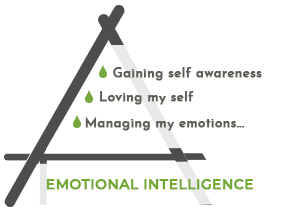

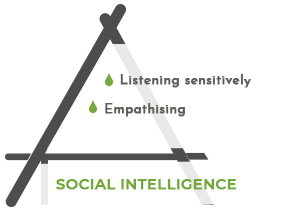
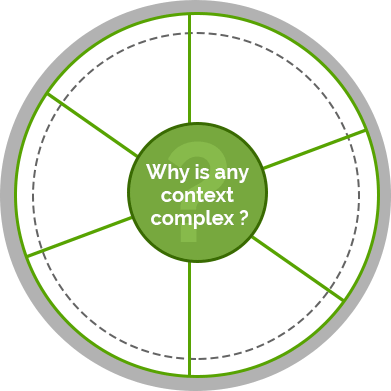
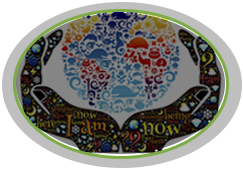
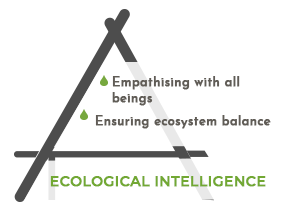

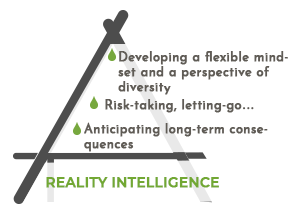





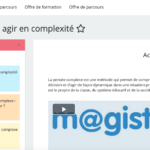
 40 Avenue Hoche
40 Avenue Hoche +33 1 34809897
+33 1 34809897 +33 6 32280182
+33 6 32280182